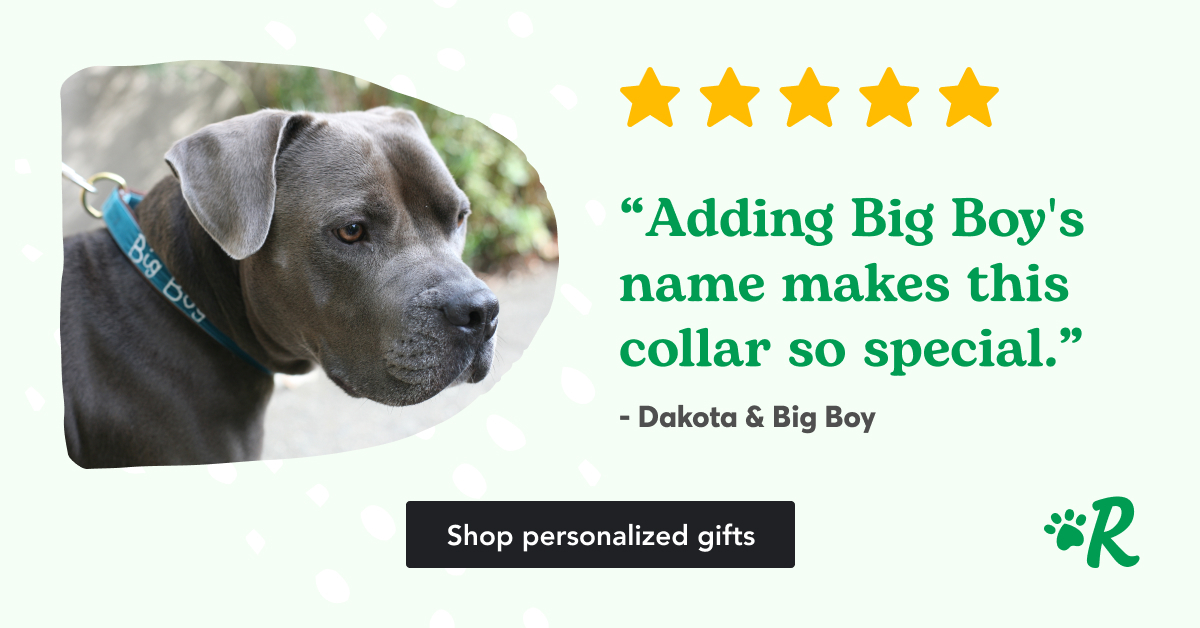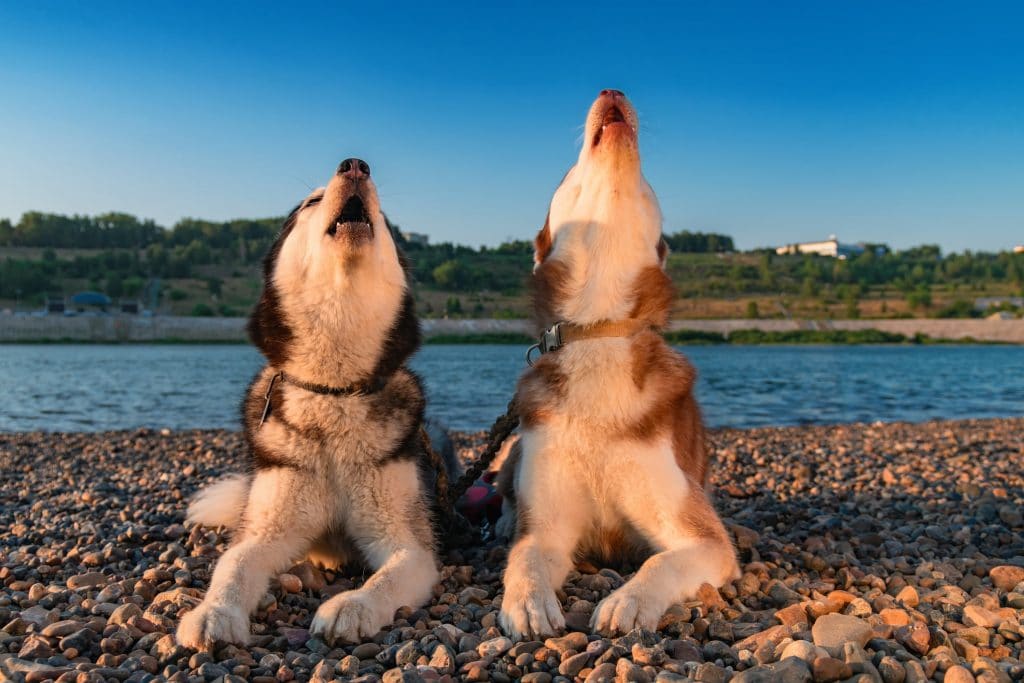Do Dogs Know What I Love You Means
You may know how to tell if your canis familiaris loves yous, but do yous know how to tell your domestic dog you lot beloved them dorsum?
Often, the best manner to tell a domestic dog you love them is through mimicry. Dogs rely on facial expressions and whole trunk language to communicate. The better yous understand canine communication and how your domestic dog feels, the improve you lot'll be able to sympathise and bond with them, expressing your love right back at them.

Additionally, dogs are descended from pack animals (though in that location's even so heated argue as to whether they can still be classified as such). Because of residual genetic or evolutionary pack animal inheritance, from times long before domestication, dogs bask the connections made from being part of a pack:
- hunting (which we often mimic with play, think retrieving a ball or ripping into a squeaky toy)
- exercising (part of the hunting and scavenging behavior of a pack)
- physical bear upon (if only nosotros could recreate the den in our modern living rooms)
Past learning to interpret dog body language and mimic the pack behaviors your dog craves, yous can say 'I honey yous' to your canis familiaris in the following ways. Nosotros all know that a loved dog equals a happy canis familiaris, and dog dearest equals pure love (simply check out the video evidence!).
one. Don't be embarrassed to utilise your dog voice

iStock via Автор
Studies using MRI technology show dogs sympathise man linguistic communication better than previously thought. Then holding that one-manner conversation with your canis familiaris isn't as crazy as you might think.
The news gets better: that high-pitched tone you utilise to talk to your dog (better known equally babe-talk)? Dogs actually like it. Medical News Today also points out that your dog wants to hear words specific to the domestic dog lexicon: treat, walk, good. You know the words.
Also, reading to dogs has been shown to at-home broken-hearted and high-energy dogs in shelters, and brings shy dogs out of their shells.
2. Be a proficient listener
Not certain if you're getting the message of dearest across? Your dog's body language will tell yous. Look for all of the canis familiaris body languages of love:
- a wagging tail
- heart contact
- a raised countenance (see more below)
Conversely, keep an center out for the warning signs of and anxious domestic dog:
- a tucked tail
- lip licking
- your dog's eyes are popping out or averted
3. Loving gazes
Your canis familiaris'due south eyes exercise much of their talking. You tin communicate dorsum to them using the same language of heart contact.
When a domestic dog gives you long, lingering eye contact, it's a way of saying "I honey you." A recent study shows that oxytocin, the 'beloved chemical,' goes up in both dogs and humans when they share a kind gaze.
Spotter your approach, though. Staring downwardly a domestic dog in a forceful manner can be a sign of aggression for your dog.

iv. Facial expressions of dear
No matter how we may wish to hide our feelings, even from our dogs, most pet owners know that animals are sensitive to our emotional states. Scientific studies have shown that dogs can read homo emotions through our facial expressions.
You lot tin be intentional about what your face is telling your dog. Japanese behavioral scientists have shown that when a dog feels connected to someone, they often raise their eyebrows—the left one more the right. And so greeting your dog with raised eyebrows and a relaxed smile tells your dog how happy you are to meet them.
5. The lean of honey
Did y'all know that a dog will lean confronting you equally a sign of love and trust? Unless the lean seems to be an broken-hearted behavior or a not-then-subtle button toward the door, this body posture from your dog can be mimicked or reciprocated to prove amore.
So go alee, lean in to show a little love.
half dozen. Cuddles and naps

iStock via gollykim
Office of your canis familiaris'due south same residual pack behavior is playing difficult and so resting together. Even if you lot don't care to allow your dog in bed with you, an afternoon nap together on the couch or in the grass will deepen your dog's feeling of a pack connectedness.
And like humans, dogs thrive on physical contact. So while your domestic dog may not enjoy a hug, a nice cuddle session offers the connection they crave.
7. Strolling
Dogs thrive on routine and schedule, and then a daily walk with training mixed in volition help your canis familiaris understand how much you lot love and intendance for them.
Walks and adventures give plenty of opportunities to work on skills similar loose leash walking and call back. These shared experiences and training sessions build trust, advice, and that pack connection.
8. The impact of love
Just touching your dog releases oxytocin in you and your domestic dog, so a soothing massage, gentle grooming session, or extended petting time will tell your dog in no uncertain terms how much you beloved them. In item, rubbing your canis familiaris's ears works to release oxytocin in their body. Those adorable, soft ears are also packed with feeling receptors.
Man signals of amore that may not interpret to dogs
Dog owners also do good from learning which human signs showing affection make no sense to your dog.
- Hugging: some dogs feel trapped or pinned down when you hug them. Sentry your dog's reaction.
- Kissing: a quick peck on the head is remarkably similar to a playful nip on the neck or a gesture of domination. Your dog may retrieve yous're trying to play or affirm your place in the household hierarchy.
- Treats: as much as nutrient can be a sign of affection for humans, treats are best used for motivating behavior and canis familiaris training. Recall of how quickly your domestic dog's loyalty disappears the minute someone else offers them treats.
Your canine languages of love
Learning to say, "I beloved you" to your domestic dog is a simple matter of getting to know both your dog's individual body language as well as those comforts of pack life that your dog's animal brain all the same craves. As a bonus, all of these love languages seem to benefit your sense of well-beingness, too.
Farther reading
- 7 Surprising Means That Dogs Show Affection
- An Illustrated Guide to Canis familiaris Behavior
- 15 Fantastic Dog Fetch Toys for Hours of Fun and Bonding
bosanquettionvits.blogspot.com
Source: https://www.rover.com/blog/show-love-dog-language/
0 Response to "Do Dogs Know What I Love You Means"
Post a Comment